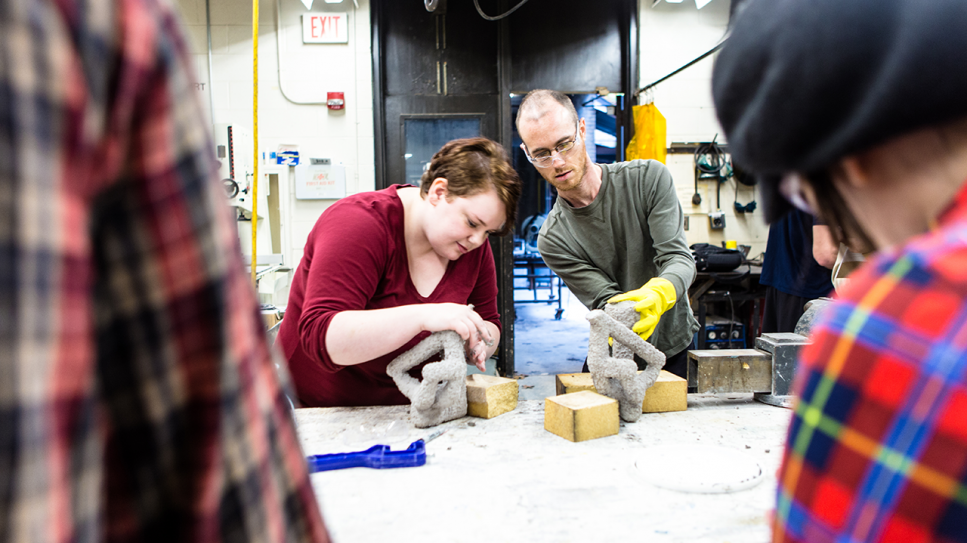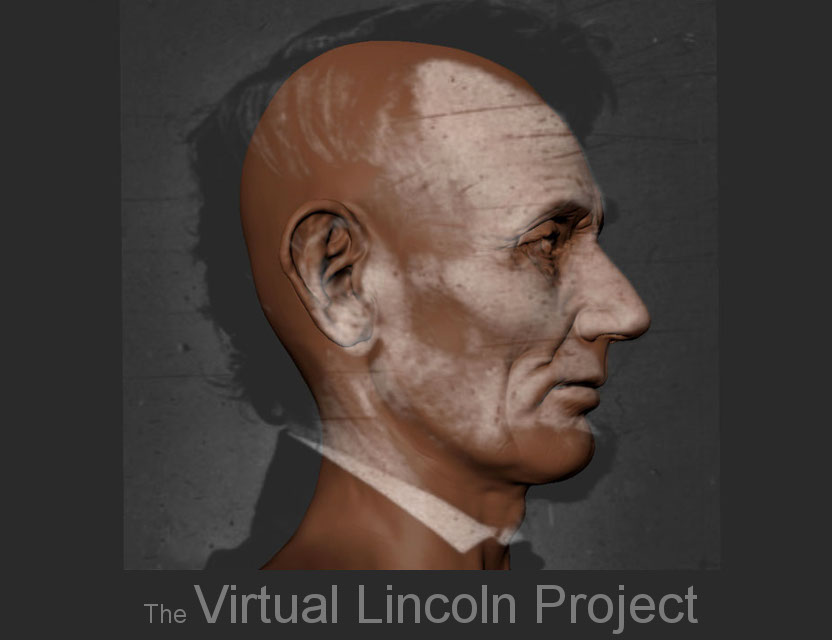Survival Guide For New Media
Tips to keep you from going Completely Crazy

New Media can be a very interesting major, but it can also be very stressful. Burnout happens. A lot. Here's some preparatory advice to hopefully make your college experience less awful-ish.


Time Management
Being able to consistently turn in assignments on time is probably the biggest issue college students struggle with. Other classes, jobs, and overlapping life factors can be difficult to juggle all at once. It sucks, but you still have to be able to judge what amount of time should be designated for each step of the design process. That means knowing when to take breaks, and when to stop fixating on minor details to focus on completing the overall product.
- Don't procrastinate on projects. What you make in college is going to affect your portfolio and chances of getting a job after graduation, so put effort into making something to be proud of
- Develop good workflow habits that will help you budget time and attain a level of quality control in your daily output. It's all about working smarter, not harder.
- Set aside time to draw something, work on personal projects, or write down ideas at least a few times a week. You can also play around with programs, but it is recommended to take frequent breaks from staring at computers all the time. Go out with friends and do stuff you enjoy. College shouldn't be all work and no fun, and taking time off is necessary to stay positive and motivated
- Be sure to leave room in your frantic schedule for food, sleep, and showers. That sounds like obvious advice, but college life can get pretty crazy sometimes. If you see someone passed out beside a computer surrounded by bags of Cheetos and empty energy drinks, it's pretty normal. Check that the person isn't dead just to be safe, then you can continue about your business
- Rendering your entire animation the day before it is due is just a bad idea. Don't say we didn't warn you.


Technology Problems
Technology may be stupid at times, but it is also quite expensive. Remember that before you decide to hurl your computer out the window. Take a deep breath and Google some cute puppy photos. You'll feel better.
- Save frequently. Files can get deleted or corrupted, so having a backup flash drive is recommended
- Always turn in something, even if it isn't finished. If you do lose all of your work when your computer hard drive dies in a freak accident, talk to the professor outside of class and see what you can do to get credit for the assignment. Professors would prefer you still show up to class even if you have nothing to show
- With as many programs being covered in the curriculum, there isn't enougn time to cover every feature of a program in depth. The best way to learn how to use the software and equipment is to watch tutorials and play around with it outside of class. You can pass every class with minimum effort put into learning the software, but then you don't actually develop any skills and you will be completely screwed when trying to apply for any software-related jobs
- Ask questions in class if you don't understand something. Get help from friends and classmates. The faculty and tutors are also there to help. Not asking questions is far worse than struggling for hours on something that should have only taken a few mouse clicks.
- Memorize keyboard shortcuts to work faster and more proficiently
- Learning all the programs and technology in New Media can be hard, but always remember that the overall success of your project will be determined by the idea, content, or story behind it. The technology is just a tool used to achieve design goals. Even though computers and cameras can do a lot of amazing things, don't become so dependent on the technology that you lose sight of what you are capable of creating yourself.


Creative Block
If you're struggling to come up with a good idea for a project, try taking a break. Look through some books, read comics, listen to music, or rewatch your favorite movies. Ask friends for ideas. Find a subject you are interested in or a question you have always wondered about. Go out and record blindly, sketch stuff, or go to the store and buy a bunch of office supplies or rubber bands or something and make something with those. Don't worry if your concept isn't complex or particularly deep, just make something that has a clear theme or message and go with it.
- Bring a sense of fun to every assignment, even the ones you have little interest in. You won't always get to choose your clients or jobs, and not everything you work on will be something you're extremely proud of. That's ok, since every thing you work on is building experience and skills to make the next project turn out better
- Don't throw out your old drawings or unused ideas. Concepts can often be reused in future projects
- Develop a reference library of things that inspire you
- Whatever you do, just keep working on something at all times. Keeping busy will generate ideas. As soon as you stop making stuff, that's when your brain switches off, and new ideas never come when your brain is in zombie-mode


Critiques
The first time you have to present your project to the class to critique, it can be kind of soul-crushing. People will often share their brutally honest opinions about the project you put blood, sweat, and lots of tears into. This is not intended to hurt anyone's feelings, it's just preparation for what professionals have to deal with on a daily basis in the real world. Listen to feedback and get ideas from the suggestions so you can go back and improve designs.
- It is a good idea to start off any critique with a compliment. Find something you liked about the project before following up with criticism. Providing suggestions for improvements or things that could be done differently is generally better than just saying the project is terrible and should be thrown in the trash.
- Some people are more sensitive than others, so try to be supportive while also being honest. If you're going to crush someone's childhood dream of becoming an animator at Pixar, at least eviscerate their hopeless aspirations gently with a pat on the back and some tissues
- Just don't take anything personally and be open to suggestions, and it isn't that bad.

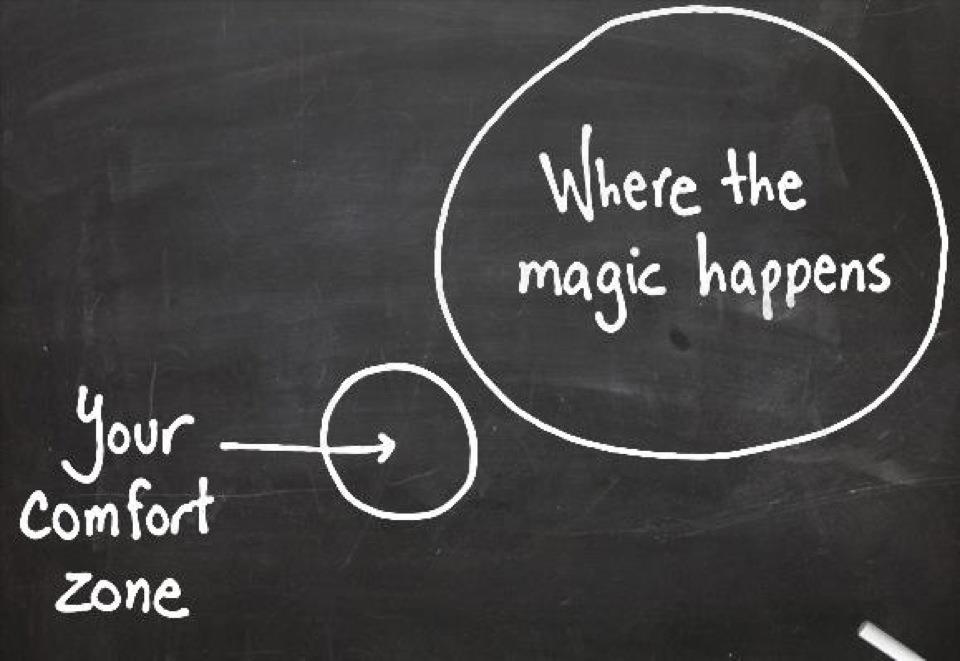
Step out of your Comfort Zone
Sieze the day! Don't hide in your room all day. You'll miss out on a lot of opportunities.
- Don't be afraid to try something new and experiment with different techniques and mediums. You'll never grow as an artist if you don't challenge yourself and do something different
- Make friends in different concentrations and majors. UNCA isn't really a college known for its crazy frat parties, but there are fun events going on if you pay attention to flyers, news, and friend recommendations. Ask people about recreation, good places to eat, and local breweries.
- When a once in a lifetime opportunity comes along, take it. Even if you don't think you have the right skillset for that dream job offer, take a risk and go for it anyway
- Start showing your work in exhibitions while in college. It only gets a lot harder to get recognition in real life
- Sometimes professors will give vague feedback about how to improve a project, which can be frustrating. In general, it is better to try something outside your comfort zone and fail than to not challenge yourself at all. Projects that demonstrate an attempt to try something completely different will generally be received better in critiques.
- Start selling work while in college. Your 3D printed garden gnomes may not sell well if at all, but the experience will help transition into a career where your time and work has a quantitative value. You will get a better understanding of what types of things are marketable, and how to set prices for commissions


Registration
Registration is a headache. Waking up at 7:00am to try and register for that one class only offered every other Spring before it inevitably gets filled is never fun. So grab your coffee and Advil and brace yourself for the nerve-racking log-in experience that is OnePort.
- Plan ahead. Take any prerequisites relating to your major as soon as possible, or you will likely get held back from graduating on time. These classes get filled up quickly, so if you keep being unable to register for a prerequiste you need, knock on the instructor's office door and beg them for an override. If it's any consolation, it's much easier to get into classes as an upperclassman.
- Your advisor won't always tell you about internships, independent research, or study abroad classes. You have to ask
- Ask for instructor overrides to get into the classes you need. Not all professors allow overrides if a class is full, but you can sometimes get put on a waitlist. A few students tend to drop a class in the first few weeks, so monitor OnePort for the chance to snatch up an open spot
- Switching majors usually causes delays in graduating. Declare early, but not too early. Make sure the subject is really something you have a strong interest in. It's normal to be uncertain
- Taking 15- 18 credit hours is difficult, and it won't necessarily help you graduate any faster. Only take 18 hours when necessary if you are trying to double major or get a minor. Some students will sign up for 18 hours so they have the option of dropping a course if it really doesn't seem to be working for them.
- If you were hoping to catch a break in your final semester, think again. The Senior Capstone project requires a lot of work and time commitment (it's also a group project depending on the professor). Prepare your schedule so that you don't have a bunch of other hard classes.
- 8am and night classes can be rough, but sometimes there's no alternative. Hang in there guys.
- There are a lot of prerequisites and diversity intensive courses. These classes will suck up ridiculous amounts of time and energy, but if your schedule has an opening one semester, try taking some electives that interest you. These classes probably won't offer credits that will count towards your major or graduation requirements, but sacrificing a few college credits beats having your mind turned into brainslush every semester. It's also your education, so you should have some choice in the matter.


Group Projects
Group projects are a necessary evil. Logically, the only way to finish a large project is by splitting up the work with a team of people. Unfortunately, this never goes according to plan. By the time the project is over most people never want to associate with other human beings again.
- Group projects have something of a bad reputation preceding the name, but the reality is they don't all have to be a miserable experience. A lot of unexpected friendships develop from working on a project together. Some people get along really well and have similar interests and suggest creative ideas that make a project interesting. Of course, there's still a small chance that you will end up getting paired with someone who secretly fantacizes about slowly feeding you into a lawnmower, but that's just the way things go.
- Communicate. Set realistic goals. Don't be a jerk to your group members or blame them when the project doesn't turn out how you hoped it would. Try to follow through with what you say you will do. Bad experiences can be avoided if everyone just tries to utilize eachother's different strengths and get along, at least until the project is over with.
- It's not fun to have to sacrifice your ideas for the greater good, especially if you think your idea would be better. It's ok to try to persuade other people to go with a different route if you disagree with the majority opinion, but compromise is essential to make progress.
- It is important that everyone voices their opinions, especially the quiet people. Nodding your head whenever someone else suggests a really terrible idea will lead to a final product that nobody is really happy with.
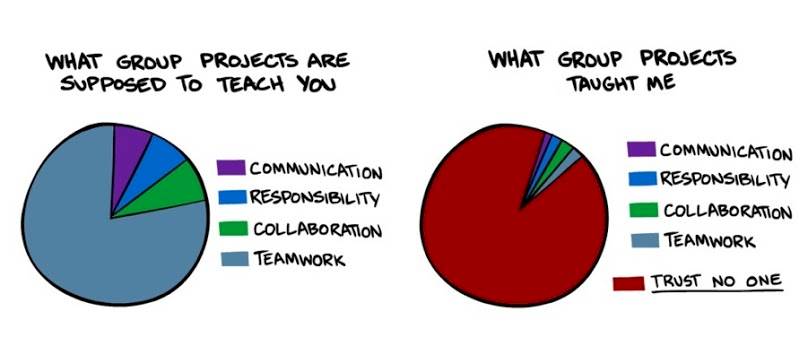
- Planning is always the most time-consuming part where not much progress is made, usually because it takes weeks just to decide on an idea everyone is sort of ok with. Try to pick an idea as soon as possible and stick with it. Indecisively changing ideas to something different every other week wastes a lot of time and ends up pushing all the work back to the last minute.
- Meet outside of class to get lunch and plan your project. People tend to be more productive when food is involved.
- Most good ideas are overly ambitious. Make sure the project is manageable in the amount of time you have. Divide up duties evenly. Sometimes one person ends up having to do extra work due to circumstances. If that lucky person happens to be you, it definitely sucks, but the project still has to get done somehow. On the positive side, you'll have something to celebrate for when the project is over
- Sometimes certain team members just don't gel for whatever reason. If team members start arguing with eachother due to stress, take a break and meet again when everyone has had time to calm down. If things escalate to the point where animosity starts to get ugly and bring down the morale of other team members, you may need to get together and stage a mediated intervention with a faculty member.

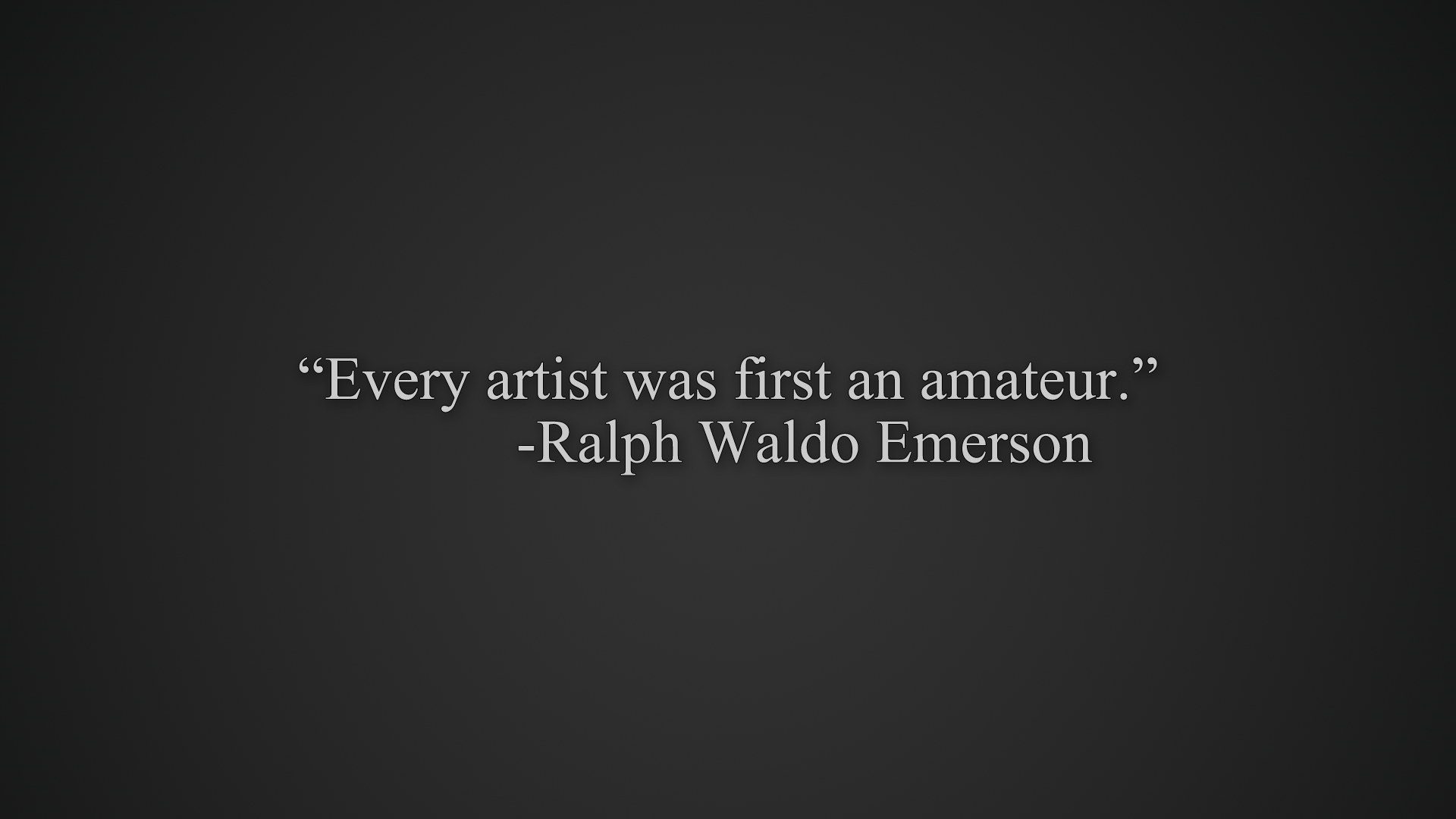
Professional-Quality Projects
Your first project isn't going to be a masterpiece. Don't get discouraged by that. Learn from mistakes. Most professional portfolios are developed over a lifetime career, so your college projects aren't always going to be the main selling point on your portfolio. The more you practice and build experience, the more you will grow in skill level.
- Don't be afraid to start out copying and borrowing ideas from artists, designers, and subjects you admire. Your own original style will develop once you find an area that you can specialize in
- The deadlines for New Media projects at UNCA are generally very short and somewhat rushed. This makes it difficult to add polish and finishing details that you would find on the types of high quality projects displayed online. Many projects that are turned in are obviously unfinished. You can always go back and refine projects later on, or start working on long-term projects in your spare time to create pieces that will be presentable on a portfolio
- Presentation is important. Have something meaningful to say about your work, even if you don't like the way it turned out. There will likely be a few rough areas in your project that you didn't have time to go back and fix; if you tried your best, don't worry about the grade. However, try to avoid turning in projects as a completely disorganized mess, since that looks unprofessional and sends a bad message to whoever is reviewing your work
- Don't compare your skill level to others. There are a lot of extremely talented people in the world whose halfhearted sketches make your best attempts look amateur. That's just the way it is. Feeling envious of these people for being so successful will just make you unhappy. Focus on finding qualities in your own style that you like, and don't worry so much about trying to be the best.
- Do what you love. People in this department have very different skills and interests, and oftentimes you have to do a presentation in front of an entire room of people who have very little interest in your topic. As long as you enjoy yourself, keep doing what you do best.

Be Positive
Whenever you get down thinking about how you will never get that stupid degree or feel like this time you're really dropping out of college, remember this video and know that Shia LaBeouf believes in you.





